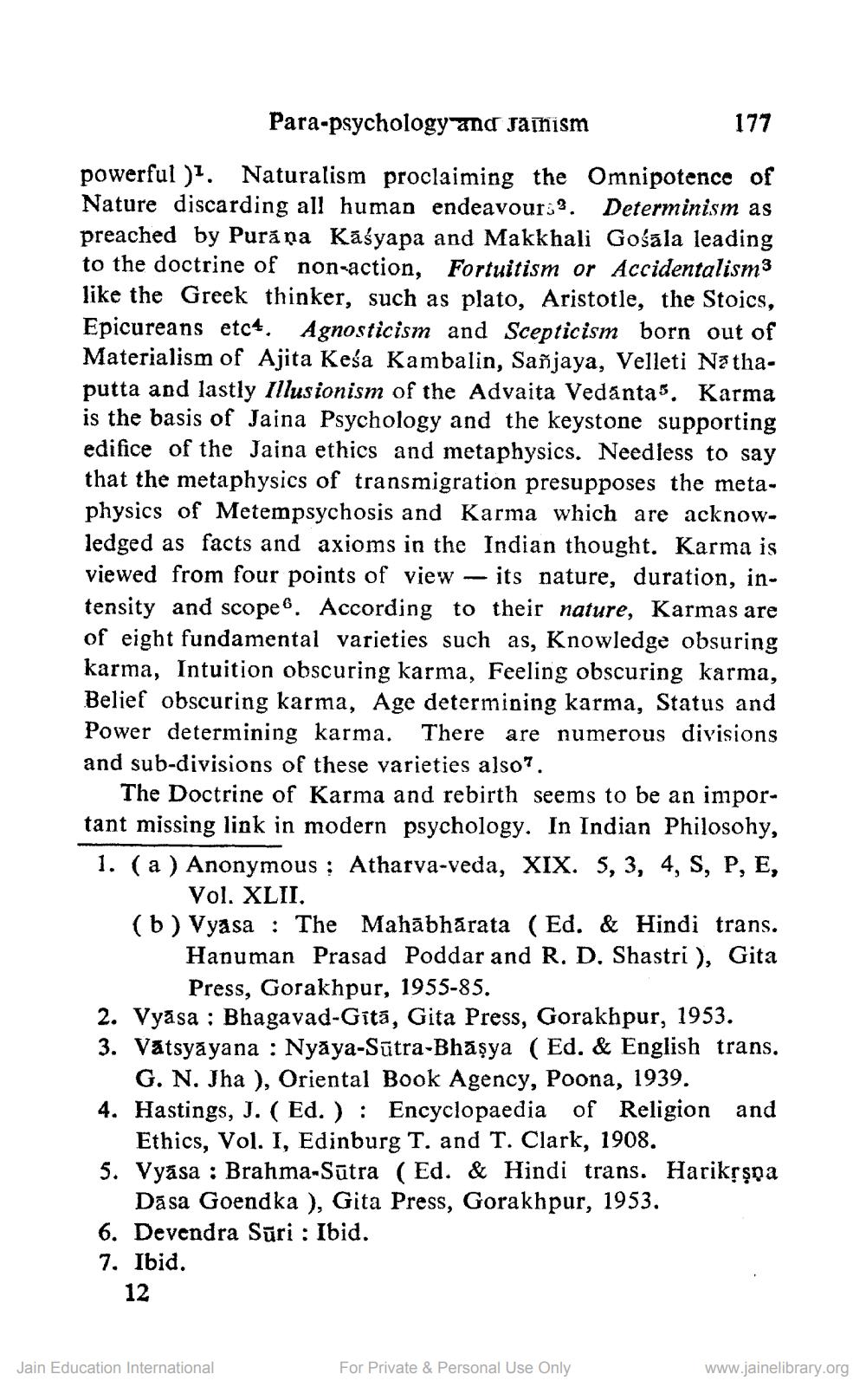________________
Para-psychology and Jainism
177
powerful )'. Naturalism proclaiming the Omnipotence of Nature discarding all human endeavours. Determinism as preached by Purana Kaśyapa and Makkhali Gośāla leading to the doctrine of non-action, Fortuitism or Accidentalism3 like the Greek thinker, such as plato, Aristotle, the Stoics, Epicureans etc. Agnosticism and Scepticism born out of Materialism of Ajita Keśa Kambalin, Sañjaya, Velleti Nathaputta and lastly Illusionism of the Advaita Vedantas. Karma is the basis of Jaina Psychology and the keystone supporting edifice of the Jaina ethics and metaphysics. Needless to say that the metaphysics of transmigration presupposes the metaphysics of Metempsychosis and Karma which are acknowledged as facts and axioms in the Indian thought. Karma is viewed from four points of view – its nature, duration, intensity and scope 6. According to their nature, Karmas are of eight fundamental varieties such as, Knowledge obsuring karma, Intuition obscuring karma, Feeling obscuring karma, Belief obscuring karma, Age determining karma, Status and Power determining karma. There are numerous divisions and sub-divisions of these varieties also?.
The Doctrine of Karma and rebirth seems to be an important missing link in modern psychology. In Indian Philosohy, 1. (a) Anonymous : Atharva-veda, XIX. 5, 3, 4, S, P, E,
Vol. XLII. (b) Vyasa : The Mahābharata (Ed. & Hindi trans.
Hanuman Prasad Poddar and R. D. Shastri ), Gita
Press, Gorakhpur, 1955-85. 2. Vyasa : Bhagavad-Gītā, Gita Press, Gorakhpur, 1953. 3. Vatsyāyana : Nyāya-Sūtra-Bhāşya (Ed. & English trans.
G. N. Jha ), Oriental Book Agency, Poona, 1939. 4. Hastings, J. (Ed.): Encyclopaedia of Religion and
Ethics, Vol. I, Edinburg T. and T. Clark, 1908. 5. Vyása : Brahma-Sūtra (Ed. & Hindi trans. Harikrşpa
Dasa Goendka ), Gita Press, Gorakhpur, 1953. 6. Devendra Sūri : Ibid. 7. Ibid.
12
Jain Education International
For Private & Personal Use Only
www.jainelibrary.org




